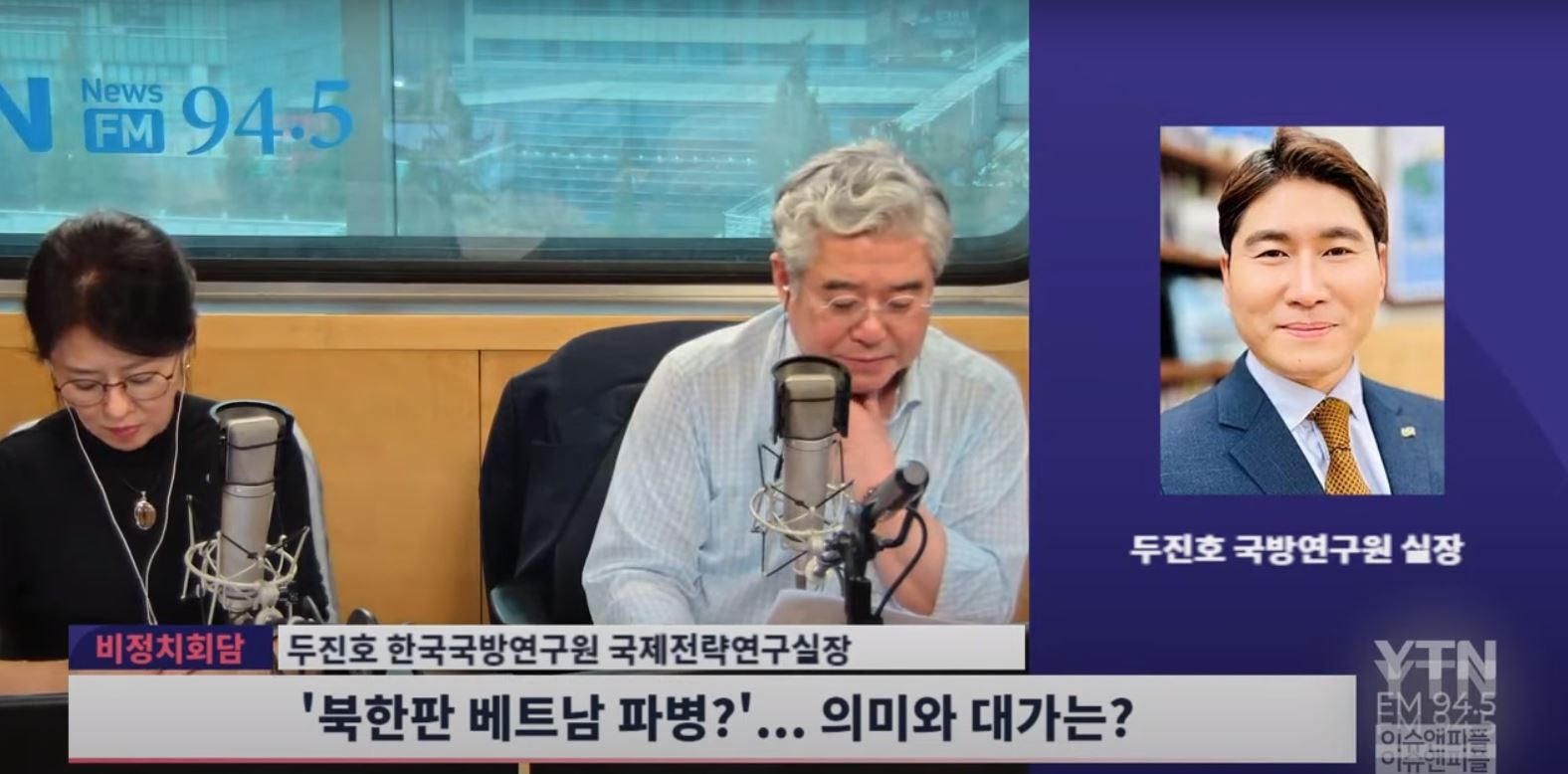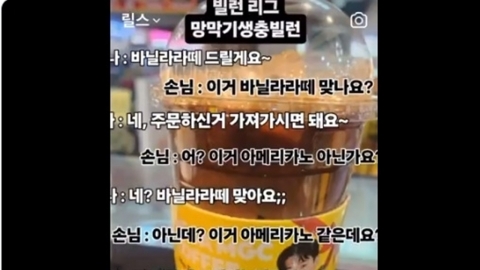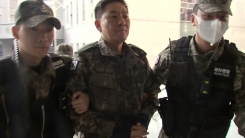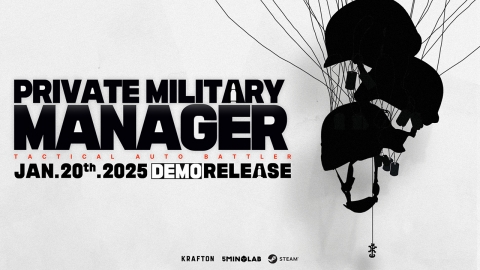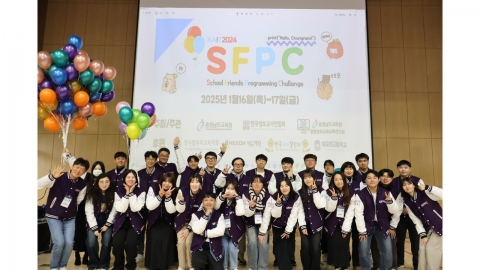- a young face 'Storm Squad'? Ukra's high-level psychological warfare
- Kim Jong Un almost used the final card...North Korea's internal governance seems to have no exit strategy
- The 60th anniversary of participation in the Vietnam War 'North Korean version of sending troops to Vietnam'
- Russian soldiers, monthly salary of 3 to 4 million won, exceeding the annual salary of North Koreans..Kim Jong-un secures governance fund
- Russia's strategic advantage when Trump is elected..The possibility of a quick end to the war
- China's Xi Jinping will condone the U.S. check even if it is uncomfortable sending troops to North Korea
[News FM Profit Line Choi Soo-young Issue & People]
□ Broadcast date and time: October 22, 2024 (Tue)
□ Host: Lee Ik-seon, Choi Soo-young
□ Contributor: Doo Jin-ho, Director of International Strategy Research Division at the Korea Institute for Defense Development
* The text below may differ from the actual broadcast content, so please check the broadcast for more accurate information.
◆ Interest Line: It's time for non-political talks. Let's talk about everything except political news. Evidence for North Korea's massive dispatch of troops to Russia is emerging one after another. Such close ties between North Korea and Russia are expected to have a significant impact on the security landscape not only in Korea but also around the world. Today, I will talk to Du Jin-ho, head of the International Strategy Research Division at the Korea Institute of Defense. I'm on the phone. Hello,
■ Hi, everyone.
◇ Choi Soo-young: Rumors of North Korea's dispatch of troops to Russia are not just at the level of the Lunar New Year's Day, but circumstances are emerging one after another. According to CNN's data obtained through the Ukrainian authorities, Russia has prepared a Korean-language questionnaire for the North Korean military dispatched by Russia and a video of a Russian training center with a North Korean accent are being released. President Zelensky also confirmed that North Korea supplies not only Russian weapons but manpower. Isn't this a serious situation?
■ Du Jin-ho: As you said, I think we should see the North Korean dispatch as a fact, not a theory. Not only CNN, but also the strategic information center belonging to the Ukrainian Ministry of Culture uses this expression these days. Related information is widely promoted through SNS and other means, including the international community and Russia and North Korea. If you look at these data, the actual North Korean military will be deployed in a specific area in the Russian Far East and become military accommodation in that area. Anyway, since we came to Russia from the military base, we have to receive Russian uniforms and combat and combat uniforms in order to put them into special military operations. So in the process of distributing combat equipment equipment in this way, a North Korean accent was actually heard. Not only that, but the actual movement of these training scenes has been confirmed, so it is not a New Year's Day, but the dispatch of troops to North Korea actually exists. I think we should look at it like this.
◆ Lee Ik-seon: Yes, I heard that the troops were part of the 11th Army known as the Storm Corps. Please explain what kind of unit it is.
◇ Choi Soo-young: First of all, the 11th Corps is an elite unit that North Korean State Councilor Kim Jong-un loved. To put it simply, Korea also has a special forces unit called the Army's Special Warfare Command. It's a very elite unit, and unlike the general infantry unit, they receive specialized training. So, it's a very elite unit because it actually deals with airlift training, sea penetration training, ground penetration training, and even strike missions dealing with actual bombs. No matter where you put it in, you can carry out your mission. Just as there is a slogan such as "Do it not work for Korea's special forces," North Korea is also a unit with such a slogan. So, the main mission is the kind of unit that carries out missions such as reconnaissance monitoring, strikes, rear disturbance penetration, and so in the case of the 11th Army Yeya, the maritime aerial sniper brigade or the light infantry brigade with great mobility.
◆ Lee Ik-seon: In short, you mean a strong unit, right?
■ Doo Jin-ho: That's right. It's a very strong unit.
◇ Choi Soo-young: But when I looked at it, I was caught receiving supplies from young soldiers. There's another saying that I'm a little young for a special forces unit.
■ Du Jin-ho: As you said, when I also looked at the piece of the video, it was assumed that this was not an elite unit, but a young-looking North Korean soldier who almost re-enrolled the boot camp, but probably because it was actually the Ukrainian side that acquired and collected the video and distributed it so widely, maybe the Ukrainian side or the side that first distributed it had an intention. Even if it's the 11th Army planned by Storm Kim Jong-un, there's a kind of psychological and high-level cognitive battle to show that this young, unqualified army is now on Russian soil against Ukraine. I think we should look at it like this.
◆ So there's also a message to give to Ukraine's own military that there's not much to look at.
■ [Doo Jin-ho] That's right. That's why there's even a rumor that it'll become a bullet stand.
◆ Profit line: wouldn't it be if it was placed on the front line? How do you see it?
■ Du Jin-ho: First of all, the war between Russia and Ukraine is going to be the 1,000th day next month. In fact, there are at least one to 1,500 casualties a day on both sides, so even if you look at any mathematical average, the North Korean military will inevitably have a similar trend of casualties when a certain unit enters. For the Russian military, it is the first time that regular foreign troops participate in the war through the dispatch of troops, so they have to consider the other side anyway and at the same time maximize their joint operational capabilities, so while seeking safety measures as much as possible, there is a possibility that actual North Korean soldiers will be deployed after much of these measures.
◇ Choi Soo-young: As you said, the North Korean military has actually been deployed, but due to the nature of the war in Ukraine, there are many open-field battles, so it will be consumed because it has to be done with manpower rather than equipment, and there is also an analysis that the North Korean military has not been used a little because they are not familiar with modern equipment, so they have not been able to use it.
■ Du Jin-ho: As you said, these arguments seem to be at odds like this. In fact, it is true that there were many casualties because we did not know exactly what weapons systems the opponent had in the early stages of the war. It played a decisive role in the casualties, and in the end, when a rudimentary level of artificial intelligence was installed, there were considerable casualties of the troops who were not prepared due to the unmanned drone system. In fact, North Korea has been isolated for a long time and has been under all-round sanctions from the international community, so it lacks the ability to produce such high-tech weapons systems, and some accessories to produce them are not distributed, so rather than an army equipped with high-tech weapons systems, it is an analog army. So, in fact, there was a lot of damage in the early stages of the Russian military war, but over time, it is the same in Ukraine. Since the war in Ukraine is a process of adapting to each other's complex system, it seems to me that the North Korean military is also likely to be deployed with defense capabilities and means to respond to unmanned aerial attacks, especially before participating in actual combat.
◆ Interest line: I see. Issue and People Today, I am calling Du Jin-ho, a senior researcher at the Korea Institute of Defense, to ask questions about the dispatch of North Korean troops to Russia. Isn't everything actually give and take? Then, I think we need to think about the specific price that North Korea will get from sending troops in many ways.
■ Doo Jin-ho: Yes, I'd like to explain political diplomacy, economic and military. First of all, it is the real benefit of North Korea in terms of politics and diplomacy. In my view, there are not many cards left for North Korean leader Kim Jong-un, but if there is one or two of the final cards, he used one of them this time. Why did they use such a card when the internal risk would be so great? In the end, what situation inside North Korea is not so easy. There's no exit strategy. There are no exit strategies in a situation where there are any benefits and the economy has been almost devastated due to COVID-19 isolation for a long time, which greatly violates the public sentiment of North Koreans. So you can see all these issues as a card to eventually lead to internal unity through the big decision of sending troops to Russia's special military operations in the Ukraine war. It's a diplomatic aspect. We have a strong deterrent against North Korea because we have a clear ally called the South Korea-U.S. alliance and those allies provide our extended deterrence capabilities. In fact, going back to June, President Putin visited Pyongyang for the first time in 24 years and signed the so-called Comprehensive Strategic Partnership Treaty between Russia and North Korea. After that, during the press conference, Chairman Kim Jong-un formed an alliance with this powerful power Russia with a very reminded face. It is of great historical significance. This is how he accomplished what his predecessors had not accomplished, and that is that North Korea finally got an ally called Russia. That's what North Korea feels threatened by. The threat of the South Korea-U.S. alliance, the threat of the U.S., and the threat of security cooperation between South Korea, North Korea feels that threat, so if it has an alliance called Russia, it will be able to provide a security umbrella as well as guaranteeing the system. It's also an economic part. Simply put, it's starting the North Korean version of the Vietnam War. So this year marks the 60th anniversary of our participation in the Vietnam War, but in fact, many things have changed in Korea's history, especially by participating in the military-related Vietnam War. So, in terms of economy, if our No. 1 education country was Japan until he participated in the Vietnam War, the Korea-U.S. alliance has strengthened since the Vietnam War, and the No. 1 trading partner in the economic zone has shifted to the United States. Through the Vietnam War, we earned a lot of foreign currency and became a stepping stone to our industrialization. Likewise, North Korea must be dreaming of this. So, in fact, troops participating in Russia's special military operation now receive about 3 million won a month in monthly salary and about 3 million to 4 million won in Korean money. Maybe not this much, but North Korean military veterans will probably receive a similar level of wages. However, these wages are a large amount that the average North Korean cannot earn even a year, so as time goes by and as more troops participate in Russia's special military operation, North Korea's so-called Kim Jong-un's governance funds will be secured. In that sense, there will be economic benefits. Lastly, it's a military aspect, and as the host said earlier, North Korea is an analog military. However, the war in Ukraine has already become a war in which high-tech weapons systems compete, so of course, casualties will occur, but if the North Korean military acquires new weapons systems, acquires combat skills, develops military exchanges, and spreads them widely in a very short period of time, it will be an opportunity to strengthen its military capabilities.
◆ Profit line: I'm most worried about this.
■ Doo Jin-ho: Another thing is that we have a strong ally Russia in political diplomacy, which means that Russia can intervene militarily on the Korean Peninsula just as North Korea is now helping Russia in the event of an emergency. That will probably be a big boost for North Korea. Let's evaluate it like this.
◇ Choi Soo-young: In the male community in their 20s and 30s, there are many articles about the automatic intervention of Russian troops in the event of a war on the Korean Peninsula. Since South Korea is an ally of South Korea and the U.S., would it be possible for North Korea to go to this stage of Russia's automatic intervention?
■ Du Jin-ho: In fact, the decision to send North Korean troops in itself means Russian military intervention in the event of an emergency on the Korean Peninsula. To explain more, Article 4 of the Comprehensive Strategic Partnership Treaty signed between Russia and North Korea in June stipulates that military support will be provided in the event of an invasion by either side. Of course, Article 4 includes Article 51 of the Charter of the United Nations and domestic laws that can control automatic intervention rather than automatic intervention right now, but looking at it now, it doesn't seem to mean much. Regardless of the meaning of the handover line, if one side feels threatened by an invasion in case of emergency, the North Korean military dispatched the troops to actually show things that can intervene immediately, so such a situation can be reproduced in case of an emergency on the Korean Peninsula.
◆ Profit line: Okay. I'm interviewing Du Jin-ho, head of the International Strategy Research Division. Trump and Harris, Harris and Trump are engaged in a super-contest. Putin says he bet on Trump being elected. So, if Trump becomes Trump, he interprets it as favorable to Russia, so why is this?
■ Doo Jin-ho: Yes, in fact, President Putin is now managing his facial expression and saying, "I don't care much about whether Harris is the nominee or Trump is the nominee," but in fact, his heart is that he wants Trump to come back to the White House. Because at some point, the U.S. presidential election has become a global presidential election, and not only internal domestic politics but also various global issues are now linked to the U.S. presidential election. Likewise, the war in Ukraine is likely to fluctuate greatly depending on the results of the U.S. presidential election. So if candidate Trump is elected, Russia will have a strategic advantage. On the contrary, Ukraine's position is that even though it is a cold winter due to climate change, the situation where you have to spend a cold winter can worsen. The reason is that if Trump had been the president himself, such a war would not have occurred. That's why his claim to end this war within 24 hours if I'm elected became a pledge. So, if I get elected, I will drive a lot of policies related to this right away from my candidate days. Normally, even if you take office next year, if this policy becomes very resilient, the war in Ukraine is now nearing 1,000 days, and there is a possibility of an end to the war or a blackout very soon.
◆ Lee Ik-sun: Yes, the manager's time is short, so I'll ask you one or two short questions.
◇ Choi Soo-young: Our government is also responding very urgently. We will demand the immediate withdrawal of the North Korean military and will not sit idle with Russia and North Korea. You said you would take a step-by-step response, so can we provide weapons of destruction directly to Ukraine?
■ Doo Jin-ho: I just announced a step-by-step response by the President's Office as a breaking news. In fact, in my view, it is interpreted as the government's will not avoid supporting even weapons of killing. Because we remained constant without much change, but in the end, North Korea and Russia engaged in illegal collusion. So, I think this has crossed the red line because North Korea has done an unprecedented incident now called dispatch. As I mentioned earlier, the strengthening of North Korea's military capabilities by participating in special military operations is a threat to the Korean Peninsula, and Korea, a global hub, clearly needs corresponding measures. In this regard, I expect that the South Korean government will take corresponding step-by-step measures in consideration of Russia's illegal military cooperation with North Korea and some military and technical cooperation that Russia will transfer to North Korea in return for North Korea's military activities in special military operations.
◆ Lee Ik-seon: I'm curious about the relationship between North Korea and China. What kind of attitude do you think China will take?
■ Du Jin-ho: There is a Breath Plus summit today in the Republic of Kazan, Russia, where President Xi Jinping is expected to attend. If President Xi Jinping attends today, he will have to talk about sending North Korean troops if he meets President Putin again. So I'm also very curious about President Xi Jinping's thoughts, but so far, it's been very uncomfortable. China's view of this situation was very uncomfortable, and it poured out anger into North Korea-China relations. But the problem is that there was an accident. Given the fact that the accident has already occurred to an irreversible level and the situation is irreversible, China, Russia and North Korea have very similar ideas about the U.S. Nevertheless, even if the relationship between North Korea and China develops in a bad way, the perception that the U.S. should be kept in check by North Korea, China and Russia will have no choice but to condone it from that point of view. I'm expecting it like this.
◇ Choi Soo-young: The worst case scenario for us is when North Korea, China, and Russia join in with the same interests. If this happens, will the U.S. have to deal with North Korea, China, and Russia at the same time?
■ Doo Jin-ho: Yes, I think that the structure of the confrontation you mentioned is already unfolding. So, in the process of strengthening Korea-U.S.-Japan security cooperation against North Korea's deterrence and China's rise, China and Russia are strengthening strategic cooperation. Here's a new word called North Korea. On top of that, China and Russia are leading the so-called Global South, most authoritarian countries. These are clearly the beginning of a new confrontation between democratic and authoritarian blocs in Northeast Asia, as these countries, which have either retreated or underdeveloped, are becoming politically, economically, and militarily influential. The new Cold War has begun and is being evaluated like this.
◇ Is the United States really prepared for something like this?
■ Doo Jin-ho: We're prepared, but because we're in the presidential election, and there are two wars going on at the same time, and the economy is not good around the world, so there's some weakening of the U.S. leadership in dealing with all of these issues compared to the past. In addition, the rise of China is dragging down the power of the United States, and Russia is fighting such a war in the European Union, and the U.S. is forced to provide military support to Israel and Ukraine, and is now pouring astronomical budgets into it. I can tell you a little bit that the power of the U.S. is also weakening.
◆ Interest line: The problem is that the people are anxious. I'd like to take this time to ask the listeners to say the last thing I want to say.
■ Doo Jin-ho: Anyway, I believe that the military is on a 24-hour tight watch. In addition, the expansion deterrence between South Korea and the U.S. is working well at any time, so I would appreciate it if you could actively encourage and support the various missions our military is carrying out.
◆ Lee Ik-seon: Thank you for talking today. Thank you very much. This was a telephone interview with Du Jin-ho, head of the International Strategy Research Division at the Korea Institute of Defense.
[Copyright holder (c) YTN Unauthorized reproduction, redistribution and use of AI data prohibited]
Politics
More- Lee Jin-woo, former leader of the Capital Defense Command, said, "I don't know in the martial arts dictionary...a claim of innocence
- Minjoo Kim Byung-joo said, "Extremist terror threat..."Bring your body uniform".
- Prime Minister Han aims at Lee Jae-myung, "We should be cautious about meeting high-ranking political officials and financial institutions."
- Democratic "Ruling Party Can't Call Riots"
